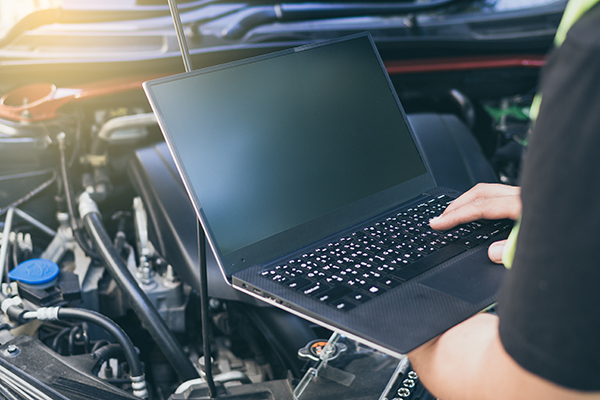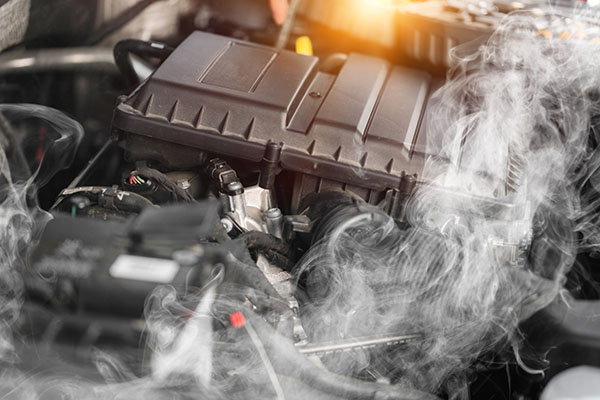Posted on 8/30/2023

In the world of modern automobiles, acronyms like ECU (Engine Control Unit) are frequently mentioned but often misunderstood. The ECU plays a crucial role in the operation of your vehicle, influencing its performance, efficiency, and overall behavior - let's take a closer look at everything you need to know about ECUs! |What is an ECU? The Engine Control Unit, or ECU, is a vital electronic component found in virtually every modern vehicle. Also known as the Engine Control Module (ECM), the ECU is the brain behind your vehicle's engine operation. It constantly monitors various sensors throughout the engine and makes real-time adjustments to optimize performance, emissions, fuel efficiency, and more. |Different ... read more
Posted on 7/30/2023

Speed limiters, also known as governors, are installed in vehicles to restrict their MPH. While some drivers may be tempted to remove them in pursuit of higher speeds and enhanced performance, it is crucial to understand the reasons why keeping them intact is essential. Let's see why that is and uncover a couple of the reasons why you shouldn't remove the speed limiter on your vehicle. Safety First The primary purpose of speed limiters is to promote safety on the roads. They help prevent excessive speeding, which is a leading cause of accidents and fatalities. Speed limits are established based on various factors, including road conditions, traffic density, and the safety of drivers and pedestrians. By keeping the speed limiter in place, you ensure that your vehicle operates within the recommended speed limits, reducing the risk of accidents and enhancing overall road safety. Legal Compliance Removing or tampering with the speed limiter is ... read more
Posted on 6/29/2023

When it comes to iconic sports cars, few brands command as much respect and admiration as Porsche. Known for their precision engineering and timeless design, Porsches have captivated automotive enthusiasts for decades. However, within this realm of automotive excellence, a particular subculture has emerged, giving birth to a breed of Porsches that are truly one-of-a-kind. These extraordinary machines are called RWB Porsches (you will learn about the abbreviation later), and they embody a spirit of individuality and customization that sets them apart from their more conventional counterparts. Here is a deeper look inside the RWB culture, what it means, and what it stands for: |What Does RWB Mean? RWB stands for "Rauh-Welt Begriff," a German term that translates to "Rough World Concept" in English. It is a company founded by Akira Nakai, a skilled Japanese Porsche enthusiast and master craftsman. RWB has gained worldwide recognition for its unique a ... read more
Posted on 5/31/2023

NASCAR, the adrenaline-fueled world of high-speed racing, captures the hearts of millions of fans around the globe. Behind the thunderous roar of these powerful machines lies a key component that propels them to victory: the engine. But how do these small cars make so much power? What engines do they have? Let's dive into the world of NASCAR engines and discover what makes them so special. The Real Question? How Powerful Are They? NASCAR V8 engines produce impressive horsepower numbers, typically ranging between 750 to 900 horsepower - depending on the exact tune and engine type. The engines are designed to generate substantial low-end torque, allowing drivers to accelerate quickly out of corners and maintain high speeds on straightaways, while not over spinning. The Powerhouse: NASCAR V8 Engines At the core of every NASCAR car lies a V8 engine - a true symbol of American power and performance. These engines are custom-built and specific ... read more
Posted on 4/30/2023

When engines work, they produce a lot of heat because of all the little explosions that occur. This means that it has to be cooled in order to work properly. The cooling system takes away heat from the engine by constantly circulating coolant in a closed loop. But what happens if the engine starts to overheat? Well, the answer may be different from what you expect because the issue isn't always the cooling system. We will look at a couple different reasons why your engine is overheating, so make sure you continue to read. Low Coolant Level One of the things that can make your engine overheat is a low coolant level. If there is almost no coolant in the loop, heat can't be transferred to it, so it can be cooled. Most of the time, it even starts to evaporate, leading to more problems. Low Oil Level Just like the coolant, your engine's oil is also responsible for keeping it at a certain temperature. The main difference is that it is in a cl ... read more